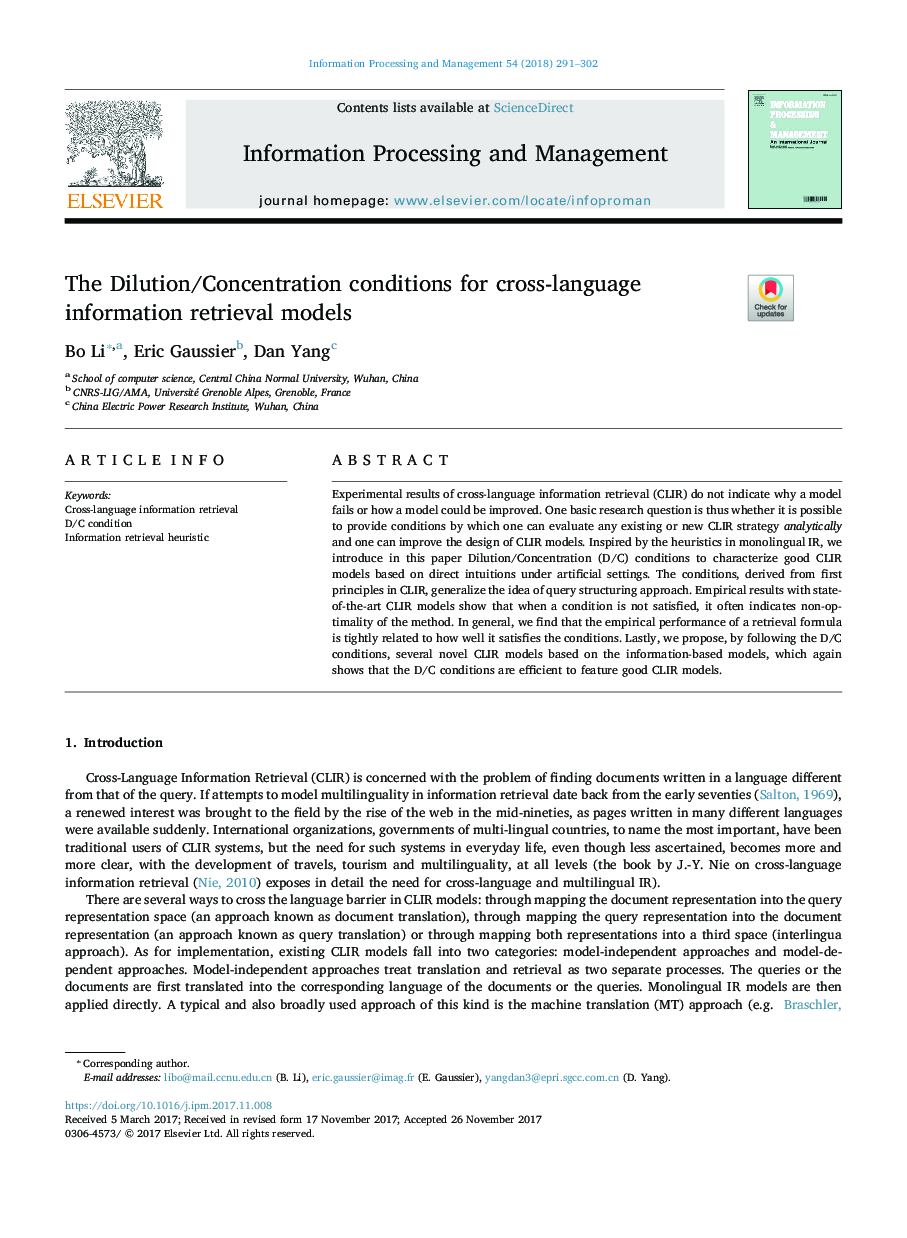| Article ID | Journal | Published Year | Pages | File Type |
|---|---|---|---|---|
| 6926113 | Information Processing & Management | 2018 | 12 Pages |
Abstract
Experimental results of cross-language information retrieval (CLIR) do not indicate why a model fails or how a model could be improved. One basic research question is thus whether it is possible to provide conditions by which one can evaluate any existing or new CLIR strategy analytically and one can improve the design of CLIR models. Inspired by the heuristics in monolingual IR, we introduce in this paper Dilution/Concentration (D/C) conditions to characterize good CLIR models based on direct intuitions under artificial settings. The conditions, derived from first principles in CLIR, generalize the idea of query structuring approach. Empirical results with state-of-the-art CLIR models show that when a condition is not satisfied, it often indicates non-optimality of the method. In general, we find that the empirical performance of a retrieval formula is tightly related to how well it satisfies the conditions. Lastly, we propose, by following the D/C conditions, several novel CLIR models based on the information-based models, which again shows that the D/C conditions are efficient to feature good CLIR models.
Keywords
Related Topics
Physical Sciences and Engineering
Computer Science
Computer Science Applications
Authors
Bo Li, Eric Gaussier, Dan Yang,
